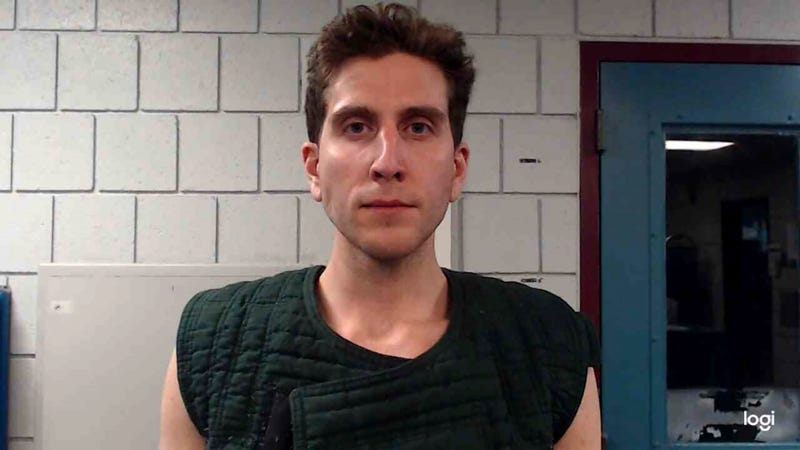
Bryan Kohberger, the Pennsylvania man arrested last week for the murder of four Idaho college students, has waived his extradition at a hearing Tuesday afternoon in East Stroudsburg. He will next return to Idaho to face the charges.
Autopsies showed the four University of Idaho students were likely asleep when they were attacked last fall. Some had defensive wounds, and each was stabbed multiple times. There was no sign of sexual assault, police said.
Arrested in Albrightsville, Kohberger has been in a Pennsylvania jail since Friday. By waiving, he is allowing the authorities in Idaho to take over the prosecution of his case and saying his arrest was lawful.
“You can challenge extradition, and that may mean they have to fly in a witness or something to prove that. Although often, it’s proved just by the certified papers,” explained Temple University law professor Jules Epstein, who is also director and professor of advocacy programs at Temple Law.
Epstein said there are very few rights for a person facing extradition. The “demanding state,” as it’s called, just has to show a crime was committed and there’s probable cause.
He noted waiving extradition does not mean a defendant is admitting guilt. Instead, they are usually trying to move their case along.
“Your lawyer here may be able to negotiate a deal that if you go back cooperatively, you will get lower bail or some other favorable condition,” he said. “The other reason to waive extradition is to get back and get your case started.”
He said it’s common for someone to fight extradition, but when they do, it could mean they just want to fight all the fights.
“Once in a blue moon, there’s a legitimate challenge to it or because they are fighting every fight possible and they think that’s part of the fight,” he added.
Kohberger’s family said in a statement released Sunday by his attorney that they “care deeply for the four families who have lost their precious children. There are no words that can adequately express the sadness we feel, and we pray each day for them.”
Tuesday's hearing was the first time his parents have seen him since he was arrested. His family said that relatives will continue to let the legal process unfold, and that “as a family we will love and support our son and brother.” They say they have fully cooperated with law enforcement to try to “seek the truth and promote his presumption of innocence rather than judge unknown facts and make erroneous assumptions.”
The victims’ bodies were found Nov. 13, several hours after investigators believe they died.
The students — Kaylee Goncalves, 21, of Rathdrum, Idaho; Madison Mogen, 21, of Coeur d’Alene, Idaho; Xana Kernodle, 20, of Post Falls, Idaho; and Ethan Chapin, 20, of Conway, Washington — were members of the university’s Greek system and close friends.
Mogen, Goncalves and Kernodle lived in the three-story rental home with two other roommates. Kernodle and Chapin were dating, and he had been visiting the house that night.
The Associated Press contributed to this report.

